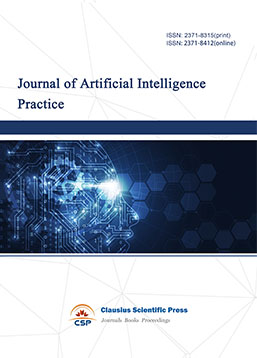Design and Implementation of Travel System for Disabled People Based on User Interest Preference Recommendation Algorithm
DOI: 10.23977/acss.2023.070705 | Downloads: 60 | Views: 1428
Author(s)
Yuanyuan Zhao 1, Zhenghuan Zhou 1
Affiliation(s)
1 School of Information Engineering, Suzhou University, Suzhou, China
Corresponding Author
Zhenghuan ZhouABSTRACT
There are a great deal of disabled persons in China's society nowadays, but they often are unable to leave the house because traveling is inconvenient for them. This work develops a recommendation system based on a recommendation algorithm that can assist persons who have disabilities navigate normally. The application of recommendation system technology can help customers rapidly identify the products they're interested in, save time, and assist companies to cut expenses. It additionally has the ability to predict users' ratings or preferences for items. In today's big data environment, there are countless recommendation systems or software for all kinds of commodities. However, giving recommendations for traveling to specific groups of people, including those who are disabled, is uncommon. In order to meet the needs of people with disabilities for barrier-free travel and to address the issue that people with disabilities have nowhere to go, this paper designs a travel recommendation system for people with disabilities based on the recommendation algorithm of users' preferences. Improve the harmony and equal treatment of Chinese society.
KEYWORDS
User interest preference, collaborative filtering, score difference, interest similarityCITE THIS PAPER
Yuanyuan Zhao, Zhenghuan Zhou, Design and Implementation of Travel System for Disabled People Based on User Interest Preference Recommendation Algorithm. Advances in Computer, Signals and Systems (2023) Vol. 7: 42-50. DOI: http://dx.doi.org/10.23977/acss.2023.070705.
REFERENCES
[1] Wang Zheng, Zhang Cheng. Interest point recommendation algorithm based on user interest similarity and familiarity. Computer and Digital Engineering, 2018, 46 (12): 6.
[2] T R Mahesh, Vinoth Kumar V, Lim Se-Jung, UsCoTc: Improved Collaborative Filtering (CFL) recommendation methodology using user confidence, time context with impact factors for performance enhancement. PLoS One, 2023, 18: e0282904.
[3] Sun. P, J. S. Li, and G. Li. "Research on Collaborative Filtering Recommendation Algorithm Based on Sentiment Analysis and Topic Model." the 2019 4th International Conference 2019.
[4] Hou M., et al. "Development of a headspace-gas chromatography/mass spectrometry method based on matrix-matched calibration for evaluating VOC content, characterization, source, and risk in RO membrane." Polymer Testing 107 (2022): 107474.
[5] Ayub Mubbashir, Ghazanfar Mustansar Ali, Mehmood Zahid et al. Modeling user rating preference behavior to improve the performance of the collaborative filtering based recommender systems. PLoS One, 2019, 14: e0220129.
[6] Kant S., Mahara T. Merging user and item based collaborative filtering to alleviate data sparsity. Int J Syst Assur Eng Manag 9, 173–179 (2018).
[7] Wang Mingjia, Han Jingti. Collaborative filtering algorithm based on User Preference for item attributes. Computer Engineering and Applications, 2017, 53 (6): 106-110.
[8] Jin Jing, Huai Libo. Research on improved recommendation Algorithm based on tags and collaborative filtering. Journal of Yanbian University: Natural Science Edition, 2019, 45 (3): 7.
[9] W. Hong-xia, "An Improved Collaborative Filtering Recommendation Algorithm," 2019 IEEE 4th International Conference on Big Data Analytics (ICBDA), Suzhou, China, 2019, pp. 431-435.
[10] Hang Lu, Zhibin Shi, Zhongbao Liu."Collaborative Filtering Recommendation Algorithm Based on user interest and rating Differences." Computer Engineering and Applications 56. 7 (2020): 6.
[11] Dietz L. W., Sertkan M., Myftija S., Palage S. T., Neidhardt J., & Worndl W. (2022). A comparative study of data-driven models for travel destination characterization. Frontiers in big data, 5.
[12] He Wenkun, Wang Yuying, Shi Jiarong, et al. Collaborative filtering recommendation algorithm based on the number and difference degree of common scores. Journal of Yili Normal University (Natural Science Edition), 2017 (1): 80-85
[13] Zhao Z. A novel recommendation system in location-based social networks using distributed ELM. Memetic computing, 2018, 10 (3).
[14] Wang Yue, Huang Jun, Zheng Xiaonan, et al. An improved Hybrid Recommendation Algorithm Based on User Interest and Rating Differences. Computer Engineering and Design, 2021.
| Downloads: | 42771 |
|---|---|
| Visits: | 908101 |
Sponsors, Associates, and Links
-
Power Systems Computation

-
Internet of Things (IoT) and Engineering Applications

-
Computing, Performance and Communication Systems

-
Journal of Artificial Intelligence Practice

-
Journal of Network Computing and Applications

-
Journal of Web Systems and Applications

-
Journal of Electrotechnology, Electrical Engineering and Management

-
Journal of Wireless Sensors and Sensor Networks

-
Journal of Image Processing Theory and Applications

-
Mobile Computing and Networking

-
Vehicle Power and Propulsion

-
Frontiers in Computer Vision and Pattern Recognition

-
Knowledge Discovery and Data Mining Letters

-
Big Data Analysis and Cloud Computing

-
Electrical Insulation and Dielectrics

-
Crypto and Information Security

-
Journal of Neural Information Processing

-
Collaborative and Social Computing

-
International Journal of Network and Communication Technology

-
File and Storage Technologies

-
Frontiers in Genetic and Evolutionary Computation

-
Optical Network Design and Modeling

-
Journal of Virtual Reality and Artificial Intelligence

-
Natural Language Processing and Speech Recognition

-
Journal of High-Voltage

-
Programming Languages and Operating Systems

-
Visual Communications and Image Processing

-
Journal of Systems Analysis and Integration

-
Knowledge Representation and Automated Reasoning

-
Review of Information Display Techniques

-
Data and Knowledge Engineering

-
Journal of Database Systems

-
Journal of Cluster and Grid Computing

-
Cloud and Service-Oriented Computing

-
Journal of Networking, Architecture and Storage

-
Journal of Software Engineering and Metrics

-
Visualization Techniques

-
Journal of Parallel and Distributed Processing

-
Journal of Modeling, Analysis and Simulation

-
Journal of Privacy, Trust and Security

-
Journal of Cognitive Informatics and Cognitive Computing

-
Lecture Notes on Wireless Networks and Communications

-
International Journal of Computer and Communications Security

-
Journal of Multimedia Techniques

-
Automation and Machine Learning

-
Computational Linguistics Letters

-
Journal of Computer Architecture and Design

-
Journal of Ubiquitous and Future Networks


 Download as PDF
Download as PDF